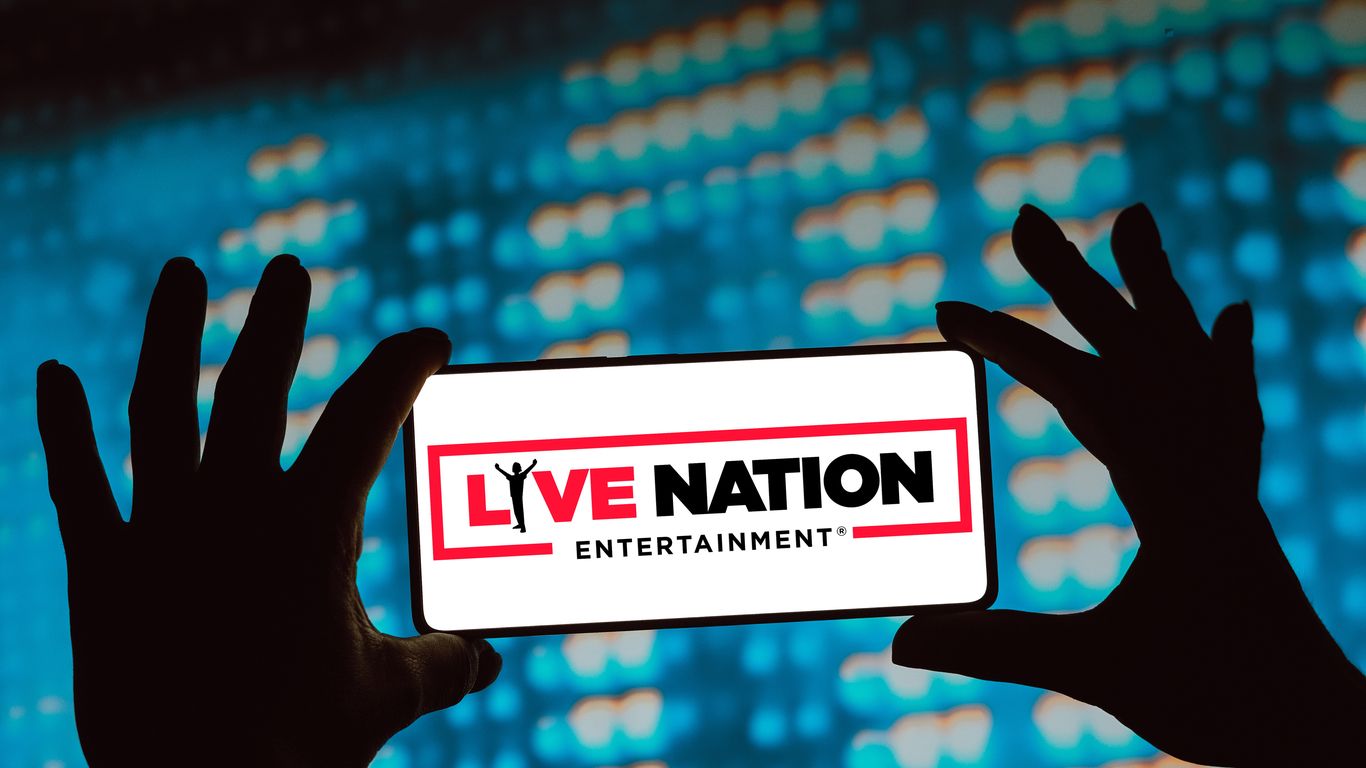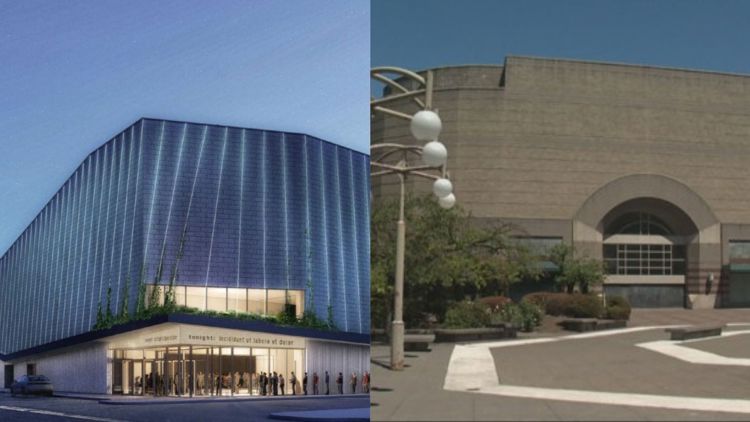Live Nation's Antitrust Battle: DOJ Claims Coercion Of Artists Through Venue Control

Table of Contents
Live Nation's Dominance in the Concert Industry
Live Nation's immense power within the concert industry is a central point of contention in this Live Nation antitrust battle. Its control extends far beyond simply promoting concerts.
Market Share and Consolidation
Live Nation boasts a staggering market share in both concert promotion and venue ownership. This dominance allows for potential anti-competitive behavior, significantly impacting artists and consumers alike.
- Massive Market Share: Live Nation controls a substantial portion of the ticketing market through Ticketmaster, its subsidiary, and holds ownership or operational control over numerous significant venues worldwide. Precise percentages fluctuate, but their market share in key regions often surpasses 70% in various segments.
- Aggressive Acquisitions: Live Nation's growth strategy has involved numerous acquisitions of smaller promoters and venue operators, leading to a significant consolidation of the industry. This consolidation further strengthens their market position and reduces competition.
- Strategic Growth: The company's strategy of vertical integration, discussed below, further exemplifies their market dominance and potential for anti-competitive practices.
Vertical Integration and Control
Live Nation's vertical integration – its control over ticketing (Ticketmaster), venue management, and artist representation – creates a potential conflict of interest and facilitates the alleged coercion of artists.
- Bundled Deals: Artists are often presented with bundled contracts that tie venue bookings to ticketing services through Ticketmaster, potentially limiting their options and negotiating power.
- Venue Access Leverage: The company's extensive network of venues provides considerable leverage, potentially pressuring artists to accept less favorable terms to secure coveted performance slots.
- Ticketmaster's Role: Ticketmaster's dominance in ticketing, a subsidiary of Live Nation, further strengthens this vertical integration, creating a potential bottleneck for artists and potentially driving up ticket prices for consumers.
DOJ's Antitrust Allegations and Evidence
The DOJ's case against Live Nation rests on allegations of coercive practices used to secure exclusive contracts with artists, thereby stifling competition and harming consumers.
Coercion Tactics and Exclusive Contracts
The DOJ claims Live Nation employs various tactics to pressure artists into signing exclusive deals, limiting their ability to work with competing promoters.
- Venue Access Restrictions: Artists are allegedly threatened with limited or denied access to desirable venues if they don't agree to exclusive contracts with Live Nation.
- Bundled Contracts: The DOJ alleges that Live Nation uses bundled contracts, tying venue access to other services, making it difficult for artists to negotiate favorable terms independently.
- Impact on Smaller Promoters: The DOJ argues that Live Nation's actions actively harm smaller, independent promoters, reducing competition and hindering the development of a diverse live music scene.
Impact on Competition and Consumer Prices
The DOJ contends that Live Nation's actions negatively impact competition, potentially leading to higher ticket prices and reduced choice for consumers.
- Reduced Competition: Fewer independent promoters mean less choice for artists and potentially higher costs associated with venue bookings.
- Higher Ticket Prices: The lack of competition could lead to artificially inflated ticket prices, making concerts less accessible to fans.
- Limited Artist Options: Exclusive contracts reduce artists' choices and potentially stifle innovation and creative freedom.
Live Nation's Defense and Counterarguments
Live Nation vigorously defends its business practices, arguing that its size and scale benefit both artists and consumers.
Denials of Wrongdoing and Competitive Practices
Live Nation denies all allegations of anti-competitive behavior, maintaining that its actions are lawful and beneficial to the industry.
- Competitive Market: Live Nation argues that the live music industry remains competitive, with numerous other promoters and venues operating successfully.
- Denial of Coercion: The company rejects claims of coercion, asserting that artists enter into agreements willingly and that these deals are mutually beneficial.
- Economic Efficiency: Live Nation highlights the benefits of its extensive network in supporting artists and providing consumers with a wide range of concert experiences.
Benefits of Consolidation and Economies of Scale
Live Nation emphasizes the cost efficiencies and broader reach that its size and scale provide.
- Reduced Operational Costs: Consolidation, they argue, allows for economies of scale, leading to lower operational costs and potentially lower ticket prices for consumers.
- Wider Artist Reach: Live Nation’s global network provides opportunities for artists to reach larger audiences than would be possible through smaller, independent promoters.
- Investment in Infrastructure: The company points to investments in infrastructure and technology, enhancing the concert experience for both artists and fans.
Conclusion
The Live Nation antitrust battle presents a complex scenario with significant implications for the music industry and consumers. The DOJ's concerns regarding monopolistic practices and potential coercion of artists are countered by Live Nation's arguments regarding economic efficiencies and fair competition. The outcome of this legal challenge will likely reshape the live music landscape. The potential consequences include changes to how artists negotiate contracts, how venues are booked, and ultimately, the cost and availability of live music for fans. Stay updated on the Live Nation antitrust case to see how this critical legal challenge will reshape the live music landscape. Following the developments in this Live Nation antitrust battle is crucial for understanding its impact on the future of concert access and artist freedom.

Featured Posts
-
 Portland Venue Development Uncertain After Oregon Ags Live Nation Win
May 29, 2025
Portland Venue Development Uncertain After Oregon Ags Live Nation Win
May 29, 2025 -
 2 Hours 10 Minutes Of Pure Terror The 1 Thriller On Ott Right Now
May 29, 2025
2 Hours 10 Minutes Of Pure Terror The 1 Thriller On Ott Right Now
May 29, 2025 -
 In Flux Technologies Launches Arcane Update Enhanced Network Security And Privacy
May 29, 2025
In Flux Technologies Launches Arcane Update Enhanced Network Security And Privacy
May 29, 2025 -
 Stellantis Stlam Names Antonio Filosa Ceo A Critical Moment For The Automaker
May 29, 2025
Stellantis Stlam Names Antonio Filosa Ceo A Critical Moment For The Automaker
May 29, 2025 -
 Legal Battle E Bay Banned Chemicals And The Limits Of Section 230 Immunity
May 29, 2025
Legal Battle E Bay Banned Chemicals And The Limits Of Section 230 Immunity
May 29, 2025
Latest Posts
-
 Ulasan Lengkap Kawasaki W175 Cafe Gaya Retro Dengan Teknologi Modern
May 30, 2025
Ulasan Lengkap Kawasaki W175 Cafe Gaya Retro Dengan Teknologi Modern
May 30, 2025 -
 Kawasaki W175 Cafe Perpaduan Retro Klasik Dan Modern
May 30, 2025
Kawasaki W175 Cafe Perpaduan Retro Klasik Dan Modern
May 30, 2025 -
 Kawasaki Ninja 650 Krt Edition 2025 Price Release Date And More
May 30, 2025
Kawasaki Ninja 650 Krt Edition 2025 Price Release Date And More
May 30, 2025 -
 Bocoran Harga Kawasaki 500 Dan 500 Se 2025 Diatas Rp 100 Juta
May 30, 2025
Bocoran Harga Kawasaki 500 Dan 500 Se 2025 Diatas Rp 100 Juta
May 30, 2025 -
 First Look 2025 Kawasaki Ninja 650 Krt Edition Motorcycle
May 30, 2025
First Look 2025 Kawasaki Ninja 650 Krt Edition Motorcycle
May 30, 2025
